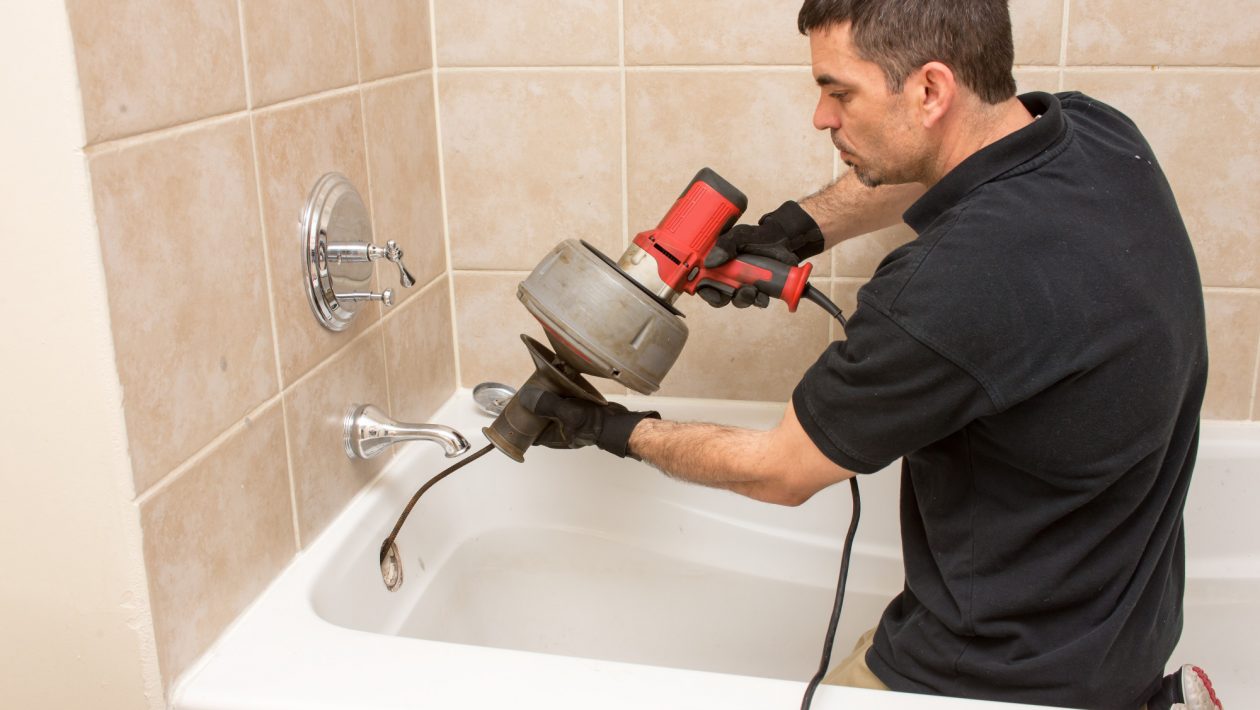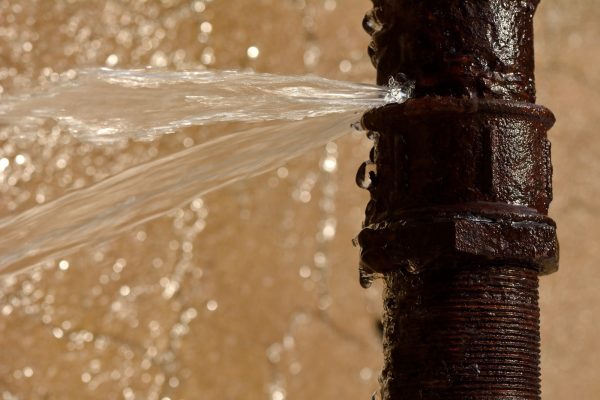Little can scare a homeowner more than when your plumbing will not work.
After all, water damage can cost you thousands of dollars that insurance may not cover.
Especially if the problem comes from plain old stupidity–like the man who plugged his own toilet with the dentures he lost after a binge-drinking vomiting episode.
No matter what the plumbing problem may be, you want to ensure you hire a reliable and knowledgeable plumbing company to fix the problem.
You may be tempted to fix a problem on your own and save money. But there’s a reason why plumbers go to school.
Consider these seven questions you should ask a plumber before you hire him or her to fix your problem.
1. What is your level of expertise?
Understanding a plumber’s expertise alone will help you understand why you should hire a plumbing company.
Once you’ve gotten past the fact that you cannot fix your own problem, you need to ask your prospective plumber: what is his level of expertise. Understand the three different levels.
Apprentice Plumber
An apprentice is a plumber in the process of learning the trade through on-the-job work experience. He’s working with and for another plumber while attending plumbing classes usually.
A later-term apprentice will most likely have a wide variety of plumbing experience because of his on-the-job training, especially if he’s working with a plumber who is teaching him and not just using him for cheap labor.
Journeyman Plumber
A journeyman has more experience than an apprentice typically. Once an apprentice has worked for four to five years, he reaches journeyman status.
Most states require a journeyman to complete an exam and be continuing his or her education to renew his or her license.
So this particular plumber will have even more experience thana typical apprentice along with the qualified education.
Master Plumber
A master plumber has gone through all of the same steps as an apprentice and journeyman but has also completed an exam. This exam typically consists of written and practical knowledge.
The master plumber will have applied with the state’s Contractor’s Board.
2. What’s your estimate for the job?
A reliable plumber should do more than just eyeball a job and give you a ballpark figure for what it will cost. Instead, he should spend time examining the problem and then writing out the specifics about the cost including labor and parts.
Some plumbers will give you a free estimate, and others may charge to just look at the job.
Whatever you do, make sure your plumber gives you a full estimate, and then ask him what he will do if he goes over the estimate and how likely he is to go over the estimate.
3. Who is doing the work in Your Plumbing Company?
Some plumbers are a one-man operation. Others have an entire workforce. The plumber who comes to give you an estimate may be a master plumber. But that does not mean a master plumber will complete your work.
Ask if the plumber about his staff’s experience if he does not plan on doing the work. Ask if the staff or he clean up after themselves. Also, make sure you do not need to take any extra steps before or after the plumber has done his work.
4. What would you do if you encountered a problem you’ve never seen?
You may have the most unique problem your plumber has ever encountered. It’s fair to ask what he or she will do if the problem reaches beyond his or her expertise.
It’s also fair to ask if the plumber has ever encountered a problem like the one you have. What’s their experience in fixing this particular problem?
A good plumber will have a good answer. The plumber may have a resource to contact with more expertise. This is the person you want working for you–someone who understands his own limits and yet knows how to ask for help.
5. What if something you’re working on breaks?
If you’re hiring a licensed plumber, you’re hiring an insured plumber.
When a plumber goes through the proper steps of apprentice, journeyman, and master plumber, they receive a license. To receive a contractor’s license, a plumber must do the following:
- Pass a criminal background check
- Complete all training required by the state board
- Pass a licensing exam
- File a business name
- Show proof of commercial liability insurance
If you have a licensed plumber, this means that when something breaks or the plumber makes a critical mistake that costs you thousands of dollars in home repair in the future, his insurance will cover the cost.
You need a licensed plumber because this means you have an insured plumber.
6. Is the rate hourly or fixed?
No one likes to talk about money. But if you talk about it up front, then you will find yourself surprised by the bill.
Ask the plumber if he will bill you hourly or give you a fixed rate upon fixing the problem. This will allow you to budget your repair properly.
7. When and how do you want to be paid?
If you have a large plumbing job, your plumber will most likely break the payments up. Some will ask for half up front and the rest upon finishing the job. Some will ask for a third up front, a third part way through, and the rest at the conclusion of the job.
If a plumber asks for 100 percent of the cost up front, do not hire him or her. The liability of losing all your money and having a contractor walk off the job is too great.
A reliable plumbing company will answer these questions with no qualms. If you come across a plumber who cannot answer the questions quickly, then move on to a different contractor.
Know What You’re Getting
Asking these seven simple questions will help you know what you’re getting in a plumbing company. Ask with confidence.
After all, you’re looking for someone to work for you.
For more great articles on home improvement projects, check out our blog.


